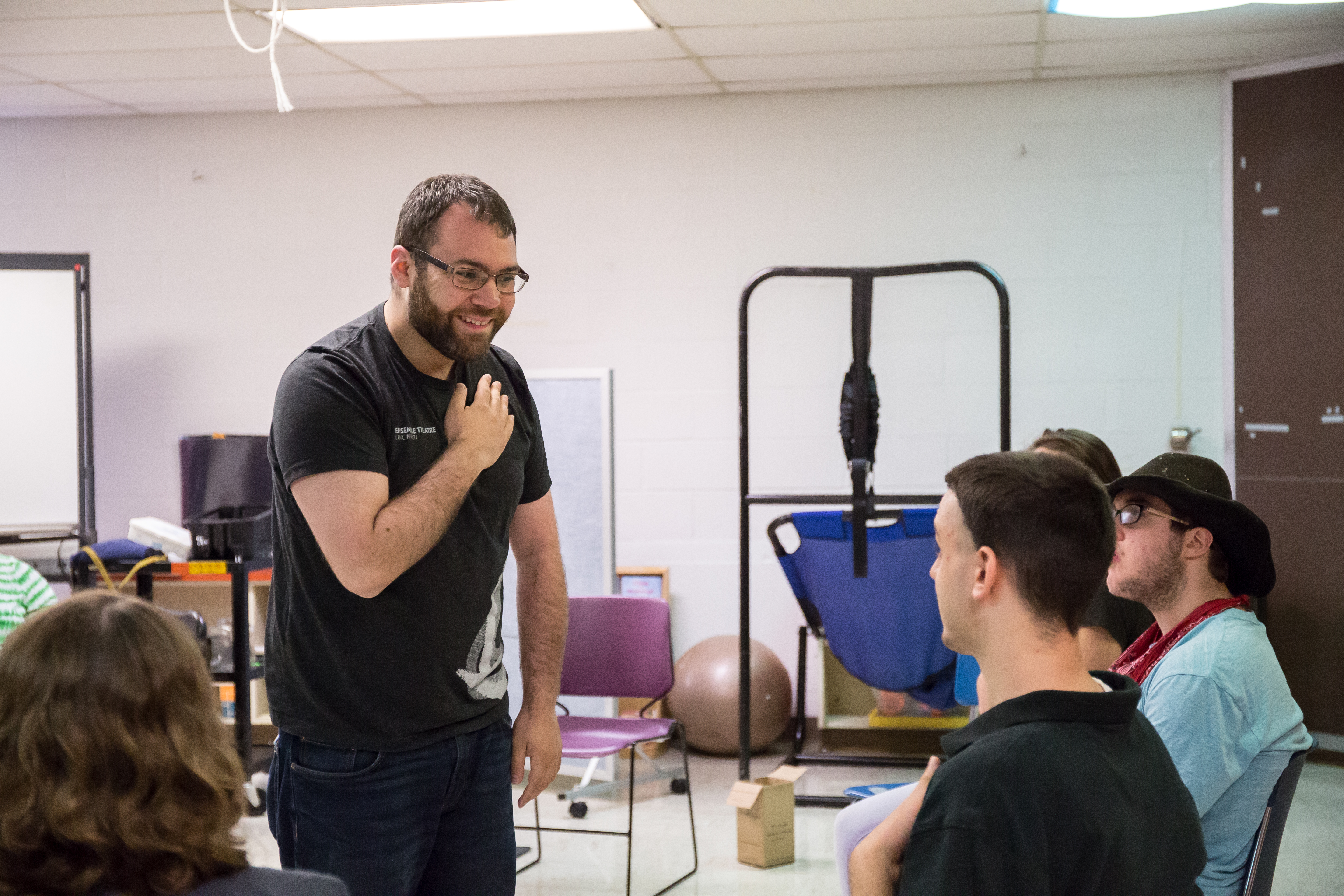 Ben Raanan uses theatre performances to help individuals with disabilities develop behavioral, communication and social skills. As a director and graduate student in The Theatre School, he strives to challenge traditional theatre settings to accommodate individuals with disabilities. (Image courtesy of Ben Raanan)
Ben Raanan uses theatre performances to help individuals with disabilities develop behavioral, communication and social skills. As a director and graduate student in The Theatre School, he strives to challenge traditional theatre settings to accommodate individuals with disabilities. (Image courtesy of Ben Raanan)
The struggle for recognition, acceptance and support resonates with people around the world. Issues involving stigmas and minority groups are being tackled in unprecedented ways. Ben Raanan, a graduate student in The Theatre School pursuing an MFA in directing and
2019 Newman Civic Fellow, has joined the fight and is challenging the traditional setting of a theatre by adapting it to accommodate differently-abled persons.
Growing up with Erbs Palsy, a condition that affects the nerves in the neck that control motion of the arm, Raanan knows first-hand what it’s like to be treated differently because of a disability. His adult brother, Adam, has what Raanan describes as "high impact" autism, and requires substantial support. During his time at Drake University, where Raanan received his BFA in directing, a BA in secondary special education and a musical theatre minor, he was inspired by Adam’s struggles and the lack of disability representation in the theatre.
“My brother is a huge part of my life. During my undergraduate studies, I directed a show on the main stage and wanted to do something disability-wise,” Raanan says. “It was a case of ‘direct what you know,’ but I couldn’t find anything acceptable. That’s what led to my now lifelong pursuit of finding inclusion in the arts and telling honest stories.”
After college, Ranaan began his career in Cincinnati, Ohio, first interning at the Ensemble Theatre Company, then transitioning to a role as the second stage director and finally to education director. It was there Raanan established the nation’s largest Hunter Heartbeat program, a method of working with people with autism, established by Kelly Hunter of the Royal Shakespeare Company in London.
“The initiative uses two Shakespearean plays to encourage the development of behavioral, communication and social skills in children with autism,” Raanan says. “It took off in Cincinnati after I attended her seminar at Ohio State University. Ensemble Theatre Company worked with 300 kids a week and still has the biggest Hunter Heartbeat program in the U.S.”
Raanan continues his work with the Hunter Heartbeat program in Chicago and also works with theatres that offer sensory-friendly performances. When these theatre companies stage performances, they consult and work with someone like Raanan to adapt the show with light and sound adjustments for people with autism.
As someone who likes to challenge norms, Raanan found the perfect program to enroll in at The Theatre School.
“Though I applied to several places, I just got this sense the type of work being done at DePaul was pushing the limits,” Ranaan says. “They don’t always resort to ‘safe work.’ At DePaul, we ask ‘why here, why now?’ DePaul’s mission was a huge factor in my decision to enroll, and the faculty, artists and actors have really helped me. They want to do plays that make a difference and are challenging in some way.”
Ultimately, Raanan’s work boils down to a simple mission.
“I want to explore how we can go beyond sight and sound to engage other sense to create art with, for and about those who are differently-abled,” he says. “I want to bring more representation of disability to the theatre and normalize it. I just want to make theatre for everyone.”